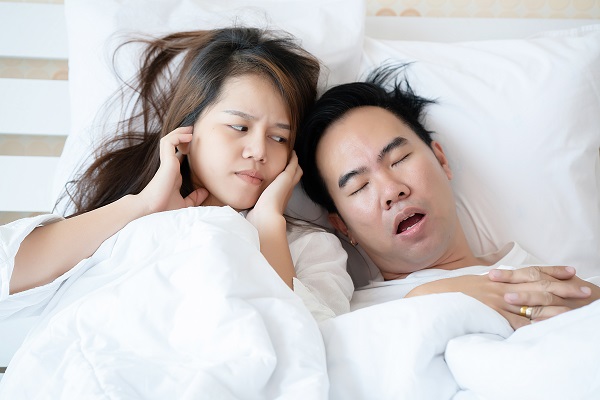How Does Sleep Apnea Affect the Brain?

According to the American Sleep Apnea Association, approximately 25 million Americans have some form of obstructive sleep apnea, which is a chronic disease that involves frequent pauses in a person's breathing during sleep. Most health warnings about this condition focus on how it can lead to high blood pressure, heart disease and diabetes, but apnea can also negatively impact brain function.
How sleep apnea affects the brain
People with apnea often experience symptoms such as daytime drowsiness, shortened attention span, moodiness, depression, anxiety and reduced short term memory recall. Research has shown that the disease may also have a long term impact on the brain.
Physical changes in the brain
Sleep apnea can change the shape of the brain over time. Because people with apnea stop breathing during sleep, the brain is temporarily deprived of oxygen, which can result in brain damage. A study conducted by the UCLA School of Nursing found decreased amounts of both gray and white matter in subjects with apnea when compared to similar subjects without it. The study also found changes in the levels of neurotransmitters that affect thinking and physical functions, such as blood pressure and perspiration. Seung Bong Hong of the Sungkyunkwan University School of Medicine in Seoul, South Korea, concluded that decreased sleep quality and brain damage could lead to poor memory, emotional problems and decreased cognitive functioning.
Memory loss and cognitive impairment
Research has shown that sleep apnea may make it more difficult for short-term memories to be stored as long-term memories. An important part of the long-term memory creation process occurs during sleep. Because apnea disrupts sleep, it also disrupts this function, which can lead to memory loss. A study by New York University researchers found that subjects with sleep apnea may experience mild cognitive impairment as much as 10 years earlier than subjects without sleep disorders. The study also indicated that the disease might lead to earlier onset of Alzheimer's disease in some people with the condition.
Dental sleep apnea treatment
Thankfully, there are a number of dental sleep apnea oral appliance treatment options to address the disorder. One common treatment option is the use of oral appliances, which includes mandibular devices and tongue-retaining appliances, both of which help keep the airway open and unobstructed throughout the night.
Additionally, CPAP machines may be used, under the supervision of a dentist and doctor. CPAP machines have more moving parts than oral appliances, however, the results tend to be worth it. In some scenarios, it may be recommended to combine CPAP machines with oral appliances to appropriately treat the sleep apnea.
Whether an oral appliance or CPAP machine is used, individuals suffering from sleep apnea will experience a better night's rest and a healthier brain.
Conclusion
Untreated sleep apnea can negatively affect both the physical and mental health of an individual. Snoring, choking sounds while asleep and daytime drowsiness may be signs of undiagnosed sleep apnea. Because treatment can reverse brain damage caused by the lack of airflow and prevent further damage, it is important for people experiencing the symptoms of sleep apnea to consult a doctor for testing and diagnosis.
Request an appointment here: https://www.cottrellsmilesva.com or call Richard Cottrell, DDS & Associates at (540) 808-1303 for an appointment in our King George office.
Check out what others are saying about our dental services on Yelp: Sleep Apnea in King George, VA.
Recent Posts
An estimated 22 million Americans have sleep apnea, and well over half of individuals with obstructive sleep apnea have a moderate to severe case. A general dentist studies and understands why sleep apnea occurs and can effectively treat it with oral appliances and other treatment methods. Many do not know whom to visit when sleep apnea…
Wondering how to treat your sleep apnea? This sleep disorder causes you to stop breathing during the night, which is caused by either your tongue or excess tissues blocking the back of your throat. Common signs associated with this condition include snoring, headaches, a dry throat, grinding or clenching teeth, mood swings, feeling tired and…
The same day crown, like a regular crown, is essentially designed to be a cap for a permanent tooth. It is designed to look and act like a natural tooth and can restore a damaged tooth's strength, function, and look.Usually, getting a crown involves fitting two dentist visits into your hectic schedule. In the first…
People opt for dermal fillers from a dentist for different purposes. Professional dentists have the skills and expertise to remarkably transform the appearance of the smile and the general aesthetics of the teeth. They are also trained in changing facial looks with the same aesthetic skills and meticulousness required for creating appealing smiles.With rejuvenation procedures…


